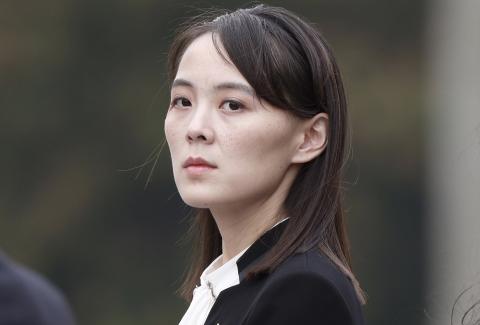
Signed in 1998, the VFA allowed a large number of US troops to enter the country, exempting them from passport and visa regulations
Duterte’s spokesperson, Salvador Panelo: Reliance on another country for our own defenses will ultimately weaken and stagnate our defense mechanisms
MANILA: The US on Wednesday expressed disappointment over the Philippines’ decision to do away with the Visiting Forces Agreement (VFA), a move which is expected to have a significant impact on the alliance between the two countries, experts and officials said.
“We are disappointed by the decision of the Philippines,” a senior administration official said in an email to Arab News on Wednesday.
“The US shares a long history with the government and people of the Philippines, and recognizes that regional and global security is best served through the strong partnership that is enabled by the VFA.”
US Defense Secretary Mark Esper shared the same views, saying that it was “unfortunate” that the Philippines had decided to terminate the pact.
Signed in 1998, the VFA allows a large number of US troops to enter the country, exempting them from passport and visa regulations so that they can participate in military activities within the Philippines.
Commenting on President Rodrigo Duterte’s decision, Esper said it would be “a move in the wrong direction” in terms of deterring China’s expansionism in the region.
“I do think it would be a move in the wrong direction as we — both bilaterally with the Philippines and collectively with a number of other partners and allies in the region — are trying to say to the Chinese ‘you must obey the international rules of order’,” he said, adding that the move could also have an impact on the “longstanding relationship we’ve had with the Philippines for their strategic location, the ties between our peoples, our countries.”
He acknowledged receiving the notice of termination, which takes effect within 180 days.
“We"ve got to read it. We’ve got to digest it ... We’ve got to work through it, and we’ll just take a deep breath and take it one day at a time.”
Despite this development, the US government said it would continue to work with the Philippines “to strengthen this relationship in a way that benefits both our countries.”
In a stark contrast, the US Embassy in Manila said on Tuesday that Duterte’s decision to end the VFA was “a serious step with significant implications for the US-Philippines alliance.”
The move has also sparked serious concerns regarding the Philippine army’s capabilities, and security in the region.
“It"s another step toward pivoting to China as the Duterte administration has done since its early days,” Rikard Jalkebro, a security expert from the School of International Relations at the University of St Andrews in Scotland, told Arab News.
In terms of its impact on foreign policy, Jalkebro said it was odd considering the long-standing relations with the US.
“Despite their colonial history, the relationship between the US and the Philippines has been very good. Other colonial powers have more problematic relations,” he said, adding that Washington had been a “stabilizing factor in the Asia-Pacific with its alliances (Japan, South Korea, Taiwan & the Philippines).”
In the Philippines, he said, the US military had helped with intelligence, training and providing supplies in countering insurgency and terrorism, and working toward disaster relief.
“Therefore, domestically this decision will be catastrophic in the sense that despite US assistance since Sept. 11, 2001, the fight against terrorism and insurgencies has not been going well. The idea that this will be conducted without the support/assistance from the US will likely be a great challenge for the Armed Forces of the Philippines,” Jalkebro said.
“I doubt that China or Russia are interested in helping out with this issue. However, if that is the new approach and you add the reluctance and disrespect for human rights (in terms of leaving the International Criminal Court and the ‘war on drugs’) it is a very disappointing and problematic road to go down,” he continued.
The Armed Forces of the Philippines’ (AFP) Chief of Staff Gen. Felimon Santos Jr., however, said that the country could survive without the VFA.
“We can live without VFA. We have lived before without (military) bases agreement ... nothing happened to us,” he told reporters following the confirmation of his appointment, adding that it would make the AFP more invested in building its own capabilities.
In Malacañang, Duterte’s spokesperson, Salvador Panelo, said it was about time the Philippines strengthened its defense capabilities.
“Reliance on another country for our own defenses against the enemies of the state will ultimately weaken and stagnate our defense mechanisms,” he said in a statement.
“Our studied action is consistent and pursuant to our charting an independent foreign policy, with our foreign relations anchored solely on national interest and the general welfare of our people.”a











